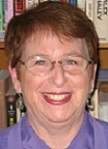Which of your characters causes you the most problems while writing? What kind of shenanigans do they pull?
 "Heron, by far. She's just a side-character in Partials, in one or two scenes at most, but I put her in there because I knew she'd be a big deal in Fragments and book 3. We even gave her a starring role in one of our digital extras :) She's a great character, but she's always trouble because she doesn't care about you or your problems--she's in this for herself, and maybe for some other secret reasons she hasn't told you yet, and if she disagrees with the way the other characters are doing something she's more than capable of doing it her own way instead (over their dead bodies if necessary). Finding ways to keep her engaged in the story and not disrupting the whole plot is a challenge, but sometimes it's great because her ideas are better than mine." - Dan Wells, author of Fragments.
"Heron, by far. She's just a side-character in Partials, in one or two scenes at most, but I put her in there because I knew she'd be a big deal in Fragments and book 3. We even gave her a starring role in one of our digital extras :) She's a great character, but she's always trouble because she doesn't care about you or your problems--she's in this for herself, and maybe for some other secret reasons she hasn't told you yet, and if she disagrees with the way the other characters are doing something she's more than capable of doing it her own way instead (over their dead bodies if necessary). Finding ways to keep her engaged in the story and not disrupting the whole plot is a challenge, but sometimes it's great because her ideas are better than mine." - Dan Wells, author of Fragments. 
"I have a character with anxiety, as in panic attacks and all that good stuff. It can be hard to write her because she freaks out over things that don’t seem like a big deal to the average person, so it’s hard to balance her pov without it getting annoying. And I have a tendency to absorb some of her anxiety and get more stressed while writing her. So yeah, I’m now rewriting her story entirely. That pretty much says it all." - Natalie Whipple, author of Transparent.
"Definitely my main character’s twin brother, Grayson. He’s kinda like Jeremy on The Vampire Diaries: always doing something annoyingly stupid." - Page Morgan, author of The Beautiful and the Cursed.
 "My narrators are definitely the ones who cause the most trouble. I spend the most of my time lost in their heads while they play games with me, send me off on aimless walkabouts, hide in trees, and tie my laces together so I trip and fall on my face and have to start over. They are the most frustrating, maddening fictional people I’ve ever come across in my life. But they’re mine." - Nova Ren Suma, author of 17 & Gone.
"My narrators are definitely the ones who cause the most trouble. I spend the most of my time lost in their heads while they play games with me, send me off on aimless walkabouts, hide in trees, and tie my laces together so I trip and fall on my face and have to start over. They are the most frustrating, maddening fictional people I’ve ever come across in my life. But they’re mine." - Nova Ren Suma, author of 17 & Gone.
"In my new book the main character evolved a lot while I was writing. He became loud, cocky and thoughtless – great fun and very entertaining, but I was worried readers might not like him. It turned out not to be a problem, but made the writing quite a challenge." - Dave Cousins, author of 15 Days Without a Head.

"In The Program I had a bit of a switch with a guy named Realm. When I wanted him nice, he was mean. And when I tried to make him cruel, he became loving. I think I finally wrestled him into what I wanted, though." - Suzanne Young, author of The Program.
 "I tend to write protagonists who closely resemble myself and that's where I tend to get into trouble. Those characters can get too fidgety, too introspective, too anxious, like me. The best, most fun characters to write are the villains--Anna in Never Let You Go and Zoe in my book Choker have been my favorite nasty bad girls. But you know, I've never had this sense that these characters spring to life and do things I don't control. They are from my imagination and considering what they should do next is the most fun part of writing." - Emma Carlson Berne, author of Never You Let Go.
"I tend to write protagonists who closely resemble myself and that's where I tend to get into trouble. Those characters can get too fidgety, too introspective, too anxious, like me. The best, most fun characters to write are the villains--Anna in Never Let You Go and Zoe in my book Choker have been my favorite nasty bad girls. But you know, I've never had this sense that these characters spring to life and do things I don't control. They are from my imagination and considering what they should do next is the most fun part of writing." - Emma Carlson Berne, author of Never You Let Go. 
"There’s a character named Cherish who is very hard to deal with because she’s a bit ephemeral. The very quality that makes her transcend the constraints of body position or facial expression make her more difficult to lock down in terms of personality." - Josin McQuein, author of Arclight.

"All of my MCs have emotional and psychological issues, so they are all problematic in different ways. One thing they all tend to do is get a bit overemotional and melodramatic at times, like when things are particularly overwhelming. I do my best to calm them down and rein them in, but often the overreaction is complete lunacy, so I have to cut the entire scene." - Scott Blagden, author of Dear Life, You Suck.
 "I write fun & light fiction, so there are quite a few shenanigans in my books. Which is good, because I sure do like typing that word: shenanigans. I only had to spell check it twice.
"I write fun & light fiction, so there are quite a few shenanigans in my books. Which is good, because I sure do like typing that word: shenanigans. I only had to spell check it twice.Now difficult characters? Those I have. In my most recent book, Going Vintage, the character Ginnie (MC's little sister) kept popping up unexpectedly in scenes. I would like to write a book about her, actually, so she can say her peace and shut up." - Lindsey Leavitt, author of Going Vintage.

"I'm often surprised by characters who unexpectedly pop up on the page and force me to decide whether (a) I should trust them to lead me into delicious new territory; (b) I should be suspicious that they're diverting me from the place I need to be; or (3) I should jettison them before they do more damage." - Lois Ruby, author of Rebel Spirits.
Find out Tuesday how significant of a role the authors feel diversification plays in the publishing industry and whether they feel pressured to branch out.










































No comments:
Post a Comment